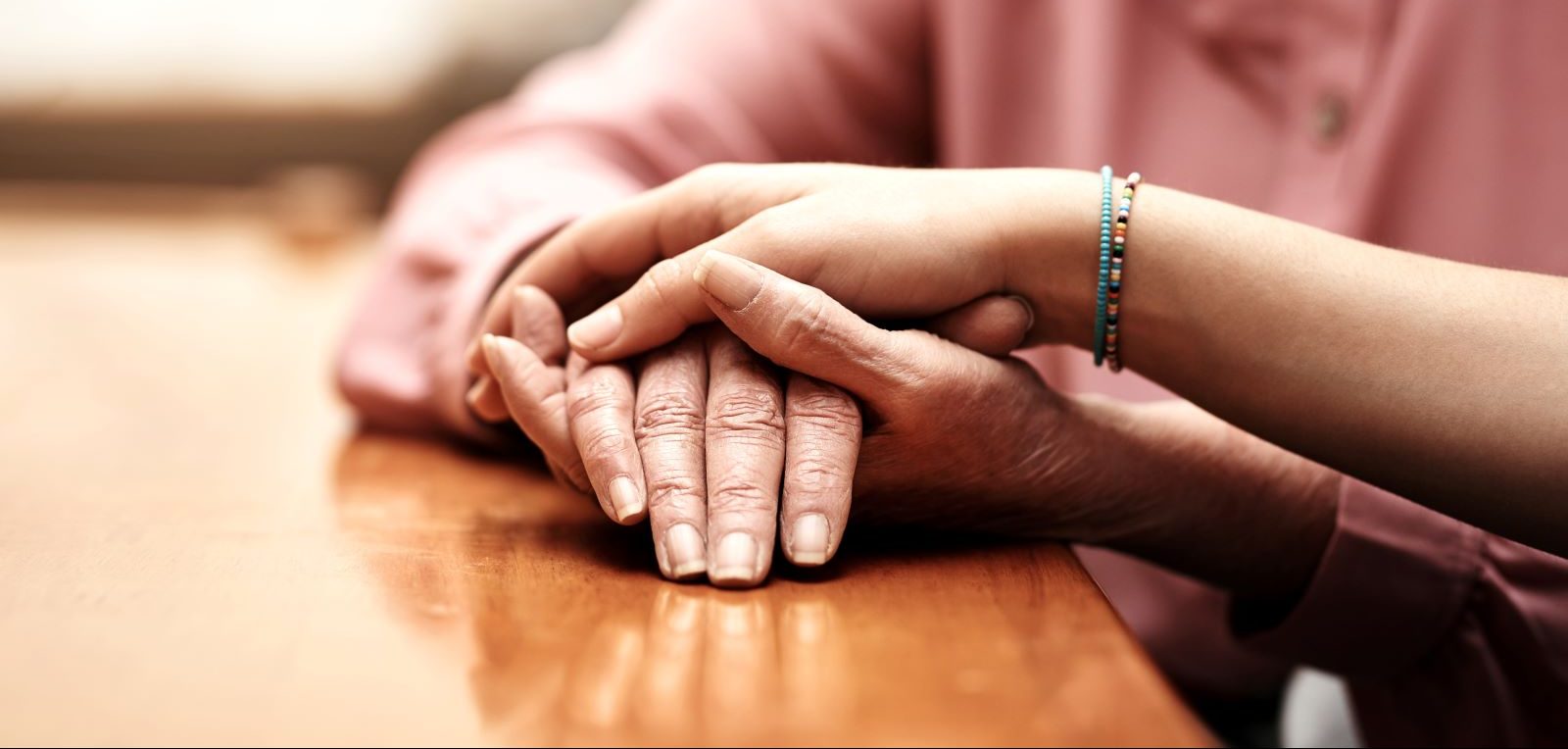<< Back
Parkinson’s: Support for Patients and Caretakers

February 13, 2023
Parkinson’s disease also brings changes to the lives of those closest to the patient, so providers should provide caregivers them tools to best help.
Amanda Brill, a social worker with the Chase Family Movement Disorders Center, part of the Ayer Neuroscience Institute, presented insight into the subject at the national meeting of the Parkinson’s Foundation with the “Care Partner Journey.”
“This isn’t something patients typically go through alone,” she says. “They have family, friends and others who provide care, and those people experience many of the same emotional reactions to the cognitive and physical changes Parkinson’s can cause.”
If we live long enough, each of us will need or be a caregiver at some point. More than 53 million family caregivers provide most of the support it takes for older people and those with disabilities to live in the community.
“The goal is to provide support that meets the individual needs of person receiving it, and allow that person to maintain independence and quality of life,” Brill says.
> Connect with the Chase Family Movement Disorders Center
Positive and negative
The journey sparks positive and negative feelings in care partners, she explains. Negative feelings might include:
- Guilt, shame
- Loneliness, isolation
- Depression
- Anger, frustration
- Fear
“Family caregivers form the backbone of our nation’s system of long-term care, supporting a wide range of people with a wide range of needs,” she says. “As a result, they can feel overwhelmed, and like they’ve lost a person special to them even though that person is right there.”
Family caregivers, she continues, suffer from higher rates of depression, greater social isolation, feelings of loneliness and a 53% greater risk of mortality than non-caregivers of the same age.
Yet, positive emotions stem from caregiving, such as:
- Warmth
- Compassion
- Tenderness
- Devotion
- Compassion
“Care partners often feel lucky to spend such important moments with someone to whom they are devoted and love,” Brill says. “Much of the time, it feels like an emotional roller coaster of ups and downs, and that’s completely normal.”
Finding balance
On that roller coaster, she suggests caregivers find balance by looking inward to understand their thoughts and emotions, then reaching out to a therapist, support group or other friends for emotional support.
“Gentle acceptance and self-compassion is key to moving through this challenging journey,” Brill notes.
Pursuing hobbies or exercise that do not include the patient is also important, she continues. Find a class or take a walk alone, socialize with other family and friends, or go to a spiritual service.
“Connection is protection in this situation, and helps care providers build resilience,” Brill says.
Local help
- Agencies on aging – Eastern CT, Middlesex County and the shoreline, 860.887.3561; north central part of state, 860.724.6443
- Department of Aging and Disability Services – www.portal.ct.gov/aginganddisability, 860.424.5055
About the expert: Amanda Brill loves dogs, and has two rescue pit bull mixes of her own.